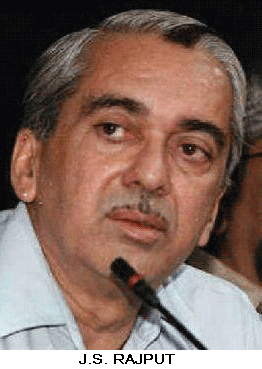World peace — Teachers’ vital role
 The manner in which most political parties and politicians, as also fringe elements regularly indulge in propagating casteism and intolerance in society in flagrant violation of constitutional provisions and democratic values, is indeed sickening. Sickening, because it impacts the younger generation presently experiencing the process of growing up, and who will take over the reins of power tomorrow.
The manner in which most political parties and politicians, as also fringe elements regularly indulge in propagating casteism and intolerance in society in flagrant violation of constitutional provisions and democratic values, is indeed sickening. Sickening, because it impacts the younger generation presently experiencing the process of growing up, and who will take over the reins of power tomorrow.
H.G. Wells, the well-known science fiction writer had warned a long time ago that “If we don’t end war, war will end us.” This celebrated author had also indicated a way out: “Human history becomes a race between education and catastrophe.” Our very own Swami Vivekananda exhorted us that it requires education, education and education to lift the nation out of the darkness of intolerance and ignorance. The issue that urgently requires a global discourse in a strife-torn and violence-infested world is: What type of education?
The missing link between the eternal objectives of education — the “ray of hope and enlightenment” — and its failure to create a cohesive and caring world, needs to be found. Impressive achievements in universalising education, significantly greater numbers in higher education, unimaginable advances in connectivity, mobility and cultural interaction, have not led to a proportionate rise in the peace quotient. Therefore, education policy formulators in all countries need to address this issue.
In this context, it’s instructive to remember the words of the great American civil rights leader Rev. Martin Luther King Jr. “One of the great liabilities of history is that all too many people fail to remain awake through periods of great social change. Every society has its protectors of the status quo and its fraternities of the indifferent who are notorious for sleeping through the revolution. Today, our very survival depends on our ability to stay awake, to adjust to new ideas, to remain vigilant and to face the challenge of change,” he said.
In the new millennium of accelerating and unpredictable change, the progress of nations will be determined by the capacity to keep pace with, if not lead, change. But this is possible only when national education systems are updated and re-designed to move with the times. In India, the evidence of “not having remained awake” is mountainous.
In my opinion, the education system must incorporate the real strength of India’s ancient civilisation which acknowledged the essential unity of all human beings, regardless of caste and religious injunctions. Indeed, it is arguable that India was the first major civilisation to acknowledge the critical importance of a man-nature relationship which respects all forms of life. In ancient India, divinity was assigned to trees, plants, animals and birds. It was this philosophy that led to the celebration, not mere tolerance, of diversity.
Respect for all creeds and religions is the sole alternative available to humankind to end religious fundamentalism, fanaticism, bigotry, violence and distrust causing huge loss of life, misery to children and spreading insecurity worldwide. In simple words, all education systems must actively teach religious tolerance and propagate the verity that no religion is superior to any other, and none is inferior. Obviously, this proposal will be strongly resisted by religious zealots of all faiths and persuasions. Such resistance has to be countered through coordinated, participatory and well-argued awareness generation campaigns on a global scale. I believe it’s always possible to appeal to the innate goodness of human beings and arouse dormant sentiments of love, tolerance and mutual respect common to all humankind. This counter-revolution has to be in the form of global youth movements which must begin in schools and colleges, not only in India but in all countries around the world.
The first point of this global agenda is to acknowledge that differing creeds are a live reality, and that a better world can be constructed only through comprehensive and dynamic systems of education which must acquaint children with the basics of all religions. Teachers and educators don’t need to go into the details of religious dogma and rituals. However, schools are the most appropriate forums for teaching children about the commonalities which underlie all religions. Can anyone deny that truth, peace, non-violence, righteous conduct and love are common values espoused by every major religion, faith or sect? Children the world over must learn to respect cultural and other differences wherever they exist. In every classroom, love, comradeship and affection abound and need to be internalised by every student to be transmitted into adult life. Only teachers can catalyse this attitudinal transformation which is essential for imagining and building a better and more peaceful world.
Education transforms a lay person into a well-rounded personality. It is the solemn responsibility of every teacher to lead learners from humanity to divinity. India’s teachers need to rise to this challenge.
(Prof. J.S. Rajput is the former chairman of NCTE and NCERT)















Add comment